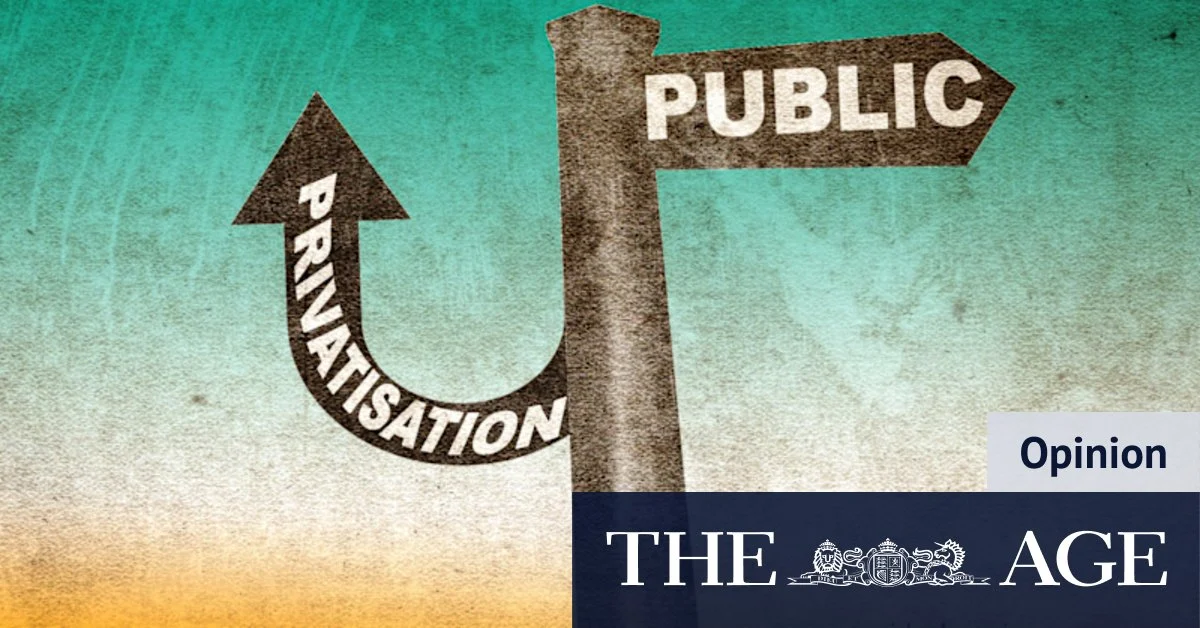That’s turned out to be quite lucrative, and it’s influenced the way they behave. Many universities have, as Jenna Price wrote in these pages this week, become “places of chaotic cost-cutting and cruel managers whose sole interest is the bottom line”.
Loading
Cue again the nationalisers. Price quotes academic Graeme Turner: “If the government wants to have a higher education system, it is going to have to face the fact that it will have to pay for it. It’s the same problem they face with aged care and childcare. You can’t prioritise essential services and turn them over to a market and assume it’s going to work.”
But the government didn’t just turn universities over to the market and assume it was going to work. First it thoroughly buggered them up. Not this particular government, but previous ones, which wanted to see more people from more diverse backgrounds going to university.
Scholarships didn’t get as many people to university as the government would have liked – because the causes of disadvantage are intertwined and pernicious. In the end, it was easier to lower academic standards than to raise disadvantaged children up to a university level. And so that’s what policymakers did.
Eventually, they even ended the separation of technical colleges – which used to teach vocational professions – from universities. Now many universities have more or less become technical colleges, or at least run courses which mimic them. And because more and more people are going to “university”, businesses have come to expect that qualification as a proof of competency. (Let me tell you, as an employer: it is not.)
Loading
Universities worked out that they could sell these easily accessible billets for a profit, and that’s degraded the student experience. But nationalising this mess won’t change the fact that the government messed up. Credential inflation is a government-induced problem that nationalisation won’t fix.
And the nationalisers are not just fixated on education. At the last election, Labor also promised to renationalise lenders’ mortgage insurance by going guarantor on first home buyer loans. The great irony of this is that LMI was originally government-owned before the government got out of the game because the market provided. It’s not a popular cost, but it’s been working ever since just exactly as it should.
In such an environment, you can guess what the immediate response was when Bendigo Bank announced last week that it would close branches in some regions. Yet again, nationalisation. It’s as unlikely that the simple solution proposed by the nationalisers will be any more effective than the one beloved of libertarians.
We can leave the explanation for that to the founder of the Institute for Public Affairs, economist Charles Denton Kemp, writing in 1947, well before the IPA went through its libertarian phase: “The industries most suited for state ownership are those where the service provided is of a more or less impersonal nature. This is in keeping with the intrinsic character of the state itself. Water is water, through whichever pipe it flows; electricity is electricity, along whichever wire it is conducted. But the position is vastly different … where the relationship between the provider and user of the service is essentially personal.”
In other words, step away from the silver bullets. Reform the system, where reform is needed. Don’t just nationalise the symptoms.
Parnell Palme McGuinness is managing director at campaigns firm Agenda C. She has done work for the Liberal Party and the German Greens.
Cut through the noise of federal politics with news, views and expert analysis. Subscribers can sign up to our weekly Inside Politics newsletter.


